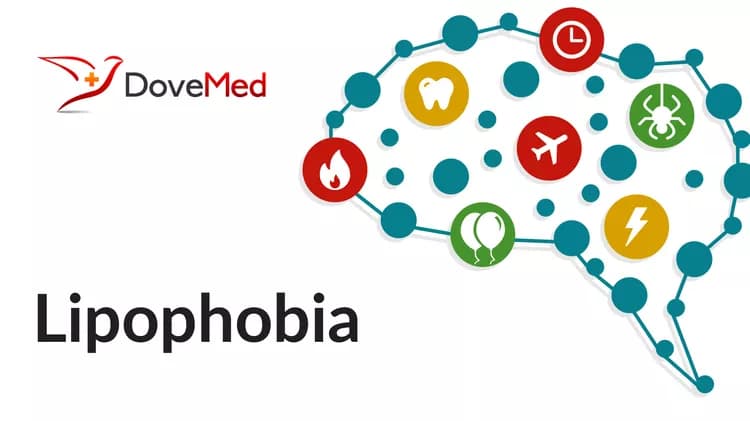What are the other Names for this Condition? (Also known as/Synonyms)
- Adipophobia
- Fat Phobia
- Fear of Fatty Foods
What is Lipophobia? (Definition/Background Information)
- Lipophobia is an excessive and irrational fear of dietary fat or fatty foods. It is categorized as a specific phobia, which is an anxiety disorder characterized by an intense and persistent fear of a particular object or situation
- Individuals with Lipophobia may experience intense anxiety or panic when confronted with foods containing fat or the idea of consuming fatty foods. The fear may stem from misconceptions or misinformation about dietary fat, such as believing that all fats are unhealthy or lead to weight gain
- Lipophobia may lead to restrictive eating patterns or avoidance of certain foods, negatively impacting overall health and nutrition. The treatment for Lipophobia often involves a combination of psychotherapy, medication, and self-help strategies. Individuals can learn to manage their fears and lead fulfilling lives with proper treatment and support
Who gets Lipophobia? (Age and Sex Distribution)
- Lipophobia can affect individuals of all ages and genders.
- It may be more prevalent in those with a history of disordered eating or body image issues
- Worldwide, no particular race or ethnicity preference is observed
What are the Risk Factors for Lipophobia? (Predisposing Factors)
Several factors can increase the risk of developing Lipophobia, including:
- Past experiences with disordered eating or eating disorders
- Body image concerns or preoccupation with weight and appearance
- Pressure from societal or cultural influences that promote fat-free or low-fat diets
- Media portrayal of fats as unhealthy or fattening
It is important to note that having a risk factor does not mean that one will get the condition. A risk factor increases one’s chances of getting a condition compared to an individual without the risk factors. Some risk factors are more important than others.
Also, not having a risk factor does not mean that an individual will not get the condition. It is always important to discuss the effect of risk factors with your healthcare provider.
What are the Causes of Lipophobia? (Etiology)
The exact causes of Lipophobia are not fully understood. However, the development of this phobia may be influenced by various factors, including:
- Media influence: Extensive exposure to messages promoting fat-free or low-fat diets may contribute to the development of Lipophobia
- Societal and cultural factors: Prevailing attitudes towards body image and weight may play a role in fostering fears related to dietary fat
- Personal experiences: Negative experiences with weight gain or body image concerns may lead to a heightened fear of consuming fat
What are the Signs and Symptoms of Lipophobia?
Individuals with Lipophobia may experience various physical and psychological signs and symptoms when confronted with fatty foods or the idea of consuming fats, such as:
- Intense anxiety or panic
- Nausea or gastrointestinal discomfort
- Heart palpitations
- Sweating or trembling
- Thoughts of disgust or repulsion towards fatty foods
- Avoidance of meals containing fat or specific food groups
- Unhealthy fixation on reading food labels for fat content
How is Lipophobia Diagnosed?
- Lipophobia is usually diagnosed through a comprehensive psychological evaluation conducted by a mental health professional
- The assessment may include discussions about the individual's medical history, specific fears, and eating habits
- Using standardized assessment tools, such as the “Lipophobia questionnaire” or the “Fat Fear scale,” can aid in diagnosing the condition
Many clinical conditions may have similar signs and symptoms. Your healthcare provider may perform additional tests to rule out other clinical conditions to arrive at a definitive diagnosis.
What are the possible Complications of Lipophobia?
If left untreated, Lipophobia can lead to various complications, including:
- Nutritional deficiencies due to avoiding healthy fats essential for the body
- Disordered eating patterns or the development of eating disorders
- Poor overall health and compromised immune function due to inadequate nutrition
- Emotional distress and reduced quality of life
How is Lipophobia Treated?
Lipophobia can be effectively treated through various psychotherapeutic and behavioral interventions. The most suitable treatment approach depends on the individual's specific circumstances and the severity of the phobia.
Common treatments for Lipophobia include:
- Cognitive-behavioral therapy (CBT): This form of psychotherapy helps individuals identify and challenge irrational thoughts and beliefs about dietary fat, develop healthy eating habits, and manage anxiety
- Exposure therapy: Gradual exposure to fatty foods in a controlled and safe environment can help individuals desensitize themselves to the fear and discomfort associated with consuming fat
- Nutritional counseling: Working with a registered dietitian can help individuals understand the importance of healthy fats in a balanced diet and dispel misconceptions about dietary fat
How can Lipophobia be Prevented?
Preventing Lipophobia involves promoting a healthy relationship with food and body image. Some strategies may help reduce the risk of developing Lipophobia or other disordered eating patterns:
- Educating oneself about the different types of fats and their role in a balanced diet
- Encouraging a positive body image and fostering self-acceptance
- Seeking professional help if concerns about disordered eating or body image issues exist
- Promoting a non-restrictive approach to eating that includes all food groups in moderation
What is the Prognosis of Lipophobia? (Outcomes/Resolutions)
With proper treatment, most individuals with Lipophobia can effectively manage their fears and develop a healthier relationship with dietary fat.
- The prognosis may vary depending on the severity of the phobia, the individual's response to treatment, and their commitment to therapy
- Early intervention and seeking professional help are essential in achieving positive outcomes and preventing potential complications related to nutritional deficiencies and disordered eating
Additional and Relevant Useful Information for Lipophobia:
The following link is a useful resource for information on other mental health conditions on DoveMed:
https://www.dovemed.com/healthy-living/emotional-well-being/
Related Articles
Test Your Knowledge
Asked by users
Related Centers
Related Specialties
Related Physicians
Related Procedures
Related Resources
Join DoveHubs
and connect with fellow professionals


0 Comments
Please log in to post a comment.